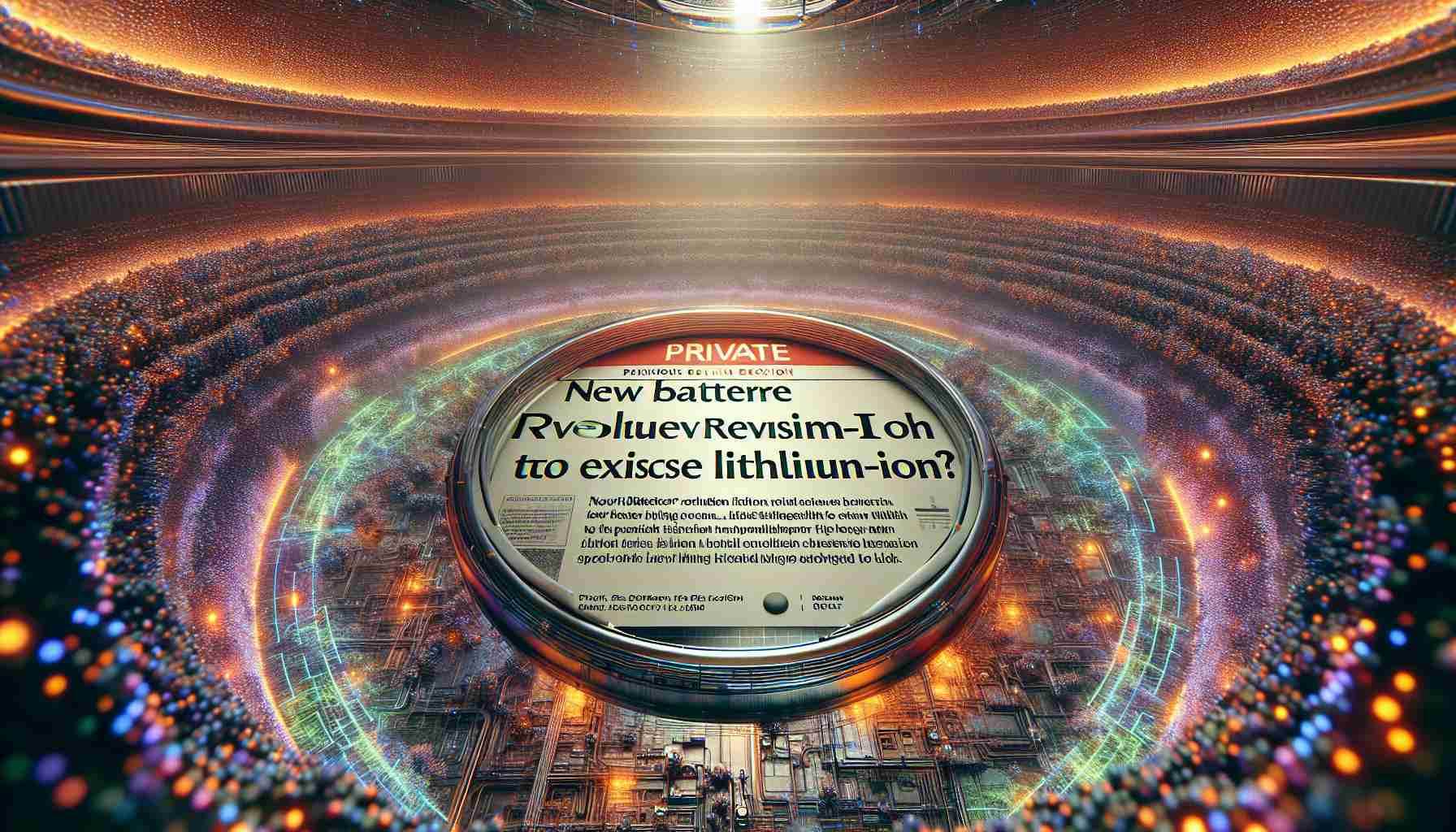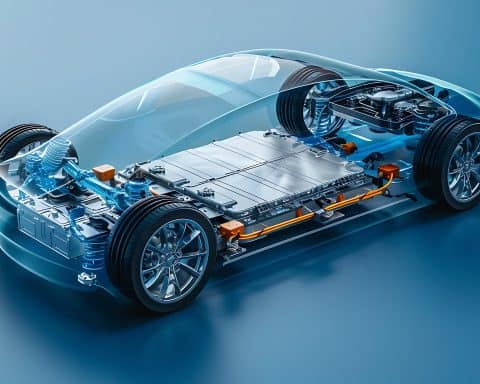In a historic move, Argonne National Laboratory, famed for its pivotal role in the Manhattan Project, is leading a new initiative that could transform the future of electric vehicle (EV) batteries. Situated near Chicago, this esteemed laboratory has embraced a broad spectrum of technological projects over the years, from nuclear power advancements to breakthroughs in cloud computing. The spotlight now shines on the development of sodium-ion batteries, a project supported by the U.S. Department of Energy’s significant $50 million investment.
The initiative, dubbed the Low-cost Earth-abundant Na-ion Storage (LENS) Consortium, tasks Argonne with spearheading efforts to develop sodium-ion technology as a promising alternative to current lithium-ion batteries. The consortium harnesses the combined expertise of six national laboratories and eight universities, including prominent institutions like Virginia Tech and the University of California San Diego.
Venkat Srinivasan, director of the Argonne Collaborative Center for Energy Storage Science, emphasized the need for sodium-ion batteries to achieve high-performance standards while maintaining ecological sustainability. A key challenge, as outlined by the project’s leaders, is to enhance the energy density of sodium-ion batteries to eventually surpass that of phosphate-based lithium-ion batteries, all while reducing reliance on critical materials.
In a statement reflecting the project’s ambition, Virginia Tech professor Feng Lin highlighted the opportunity to not only innovate in battery technology but also to nurture the next generation of scientists and engineers in the field. As international efforts continue to improve sodium-ion battery efficiency even in cold conditions, this initiative is one to watch closely in the coming years.
Revolutionizing Transportation: Sodium-Ion Batteries and Their Impact on Future Technologies
The Road to a New Battery Era
The potential transformation heralded by sodium-ion batteries could dramatically change not only the electric vehicle industry but a multitude of technology sectors reliant on efficient energy storage. Building on the historic legacy of Argonne National Laboratory, research driven by the LENS Consortium aims to challenge the current monopoly of lithium-ion technology. But what does this mean for humanity and how could it reshape the technological landscape?
Sodium-Ion Batteries: A Game-Changer Beyond Electric Vehicles
Electric vehicles (EVs) represent just the tip of the iceberg. If sodium-ion batteries can deliver on their promise, their impact will reach into smartphone technology, renewable energy storage, and even everyday household electronics. The global reliance on critical, often conflict-ridden materials like lithium and cobalt underscores the importance of finding alternatives that are more widely available and environmentally sustainable.
Sodium, the sixth most abundant element on Earth, presents a viable, eco-friendly option that could circumvent the geopolitical and environmental repercussions of lithium mining. But how close is sodium-ion technology to overtaking lithium-ion in terms of performance?
Pros and Cons: Weighing the Alternatives
Among the marked advantages of sodium-ion technology are its cost-effectiveness and reduced environmental impact. With sodium being far more abundant than lithium, the supply chain is less susceptible to market fluctuations and export restrictions. Moreover, sodium-ion batteries offer the potential for greater thermal stability, which is crucial in preventing issues like overheating or combustion—a challenge that lithium-ion technologies sometimes face.
However, sodium-ion batteries face hurdles including lower energy density compared to their lithium counterparts. This means that devices powered by sodium-ion cells might currently require larger and heavier battery packs to match the power output that we currently take for granted.
Challenges and Opportunities for Innovation
Is the world prepared to shift from lithium to sodium-ion technology? The trajectory of the LENS Consortium suggests a strategic pivot is not just viable but visionary. Perhaps the most significant question is whether the performance benchmarks set by lithium-ion can be exceeded or matched by sodium-ion advances, particularly in colder climates and high-performance scenarios.
As research progresses, promising breakthroughs keep the conversation alive. By concentrating on refining the energy density and performance benchmarks, sodium-ion batteries are set to address not just energy issues but educational and developmental opportunities worldwide.
Impacts and Controversies: A New Scientific Frontier
One cannot ignore the potential controversies such as the economic impacts on regions heavily invested in lithium mining. Additionally, technological shifts always come with transitional challenges, particularly regarding manufacturing infrastructure and workforce re-skilling.
Nonetheless, the LENS Consortium strikes a compelling narrative: fostering a globally accessible and sustainable energy solution while nurturing the next generation of scientific minds is a holistic approach to innovation.
For those eager to explore the transformative journey of battery technology and energy storage further, consider visiting Argonne National Laboratory, U.S. Department of Energy, and Virginia Tech for more in-depth information.
Conclusion
The dawn of sodium-ion technology signals more than a pivot in energy storage; it points to a broader renaissance in science and technology, shaping a sustainable and resilient future for humanity. Can sodium-ion batteries meet and exceed expectations while catalyzing broad technological revolutions? The outcome will reverberate across every sector dependent on energy storage, making it a paramount scientific endeavor of our time.
















